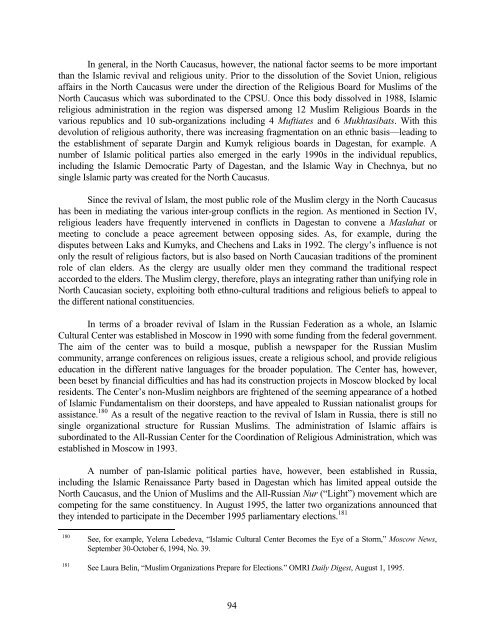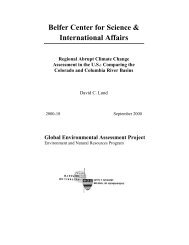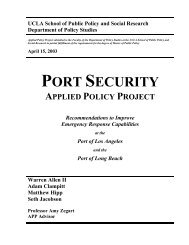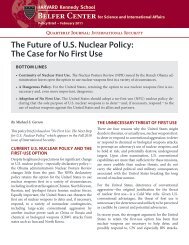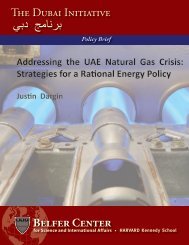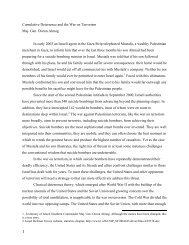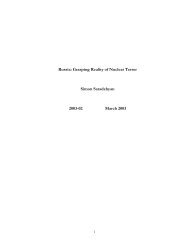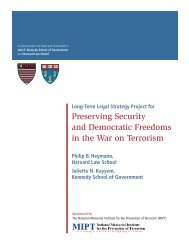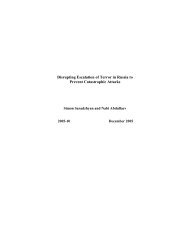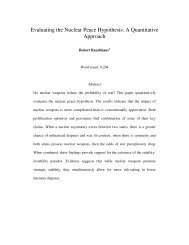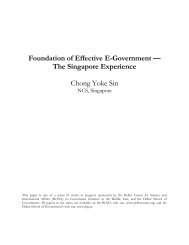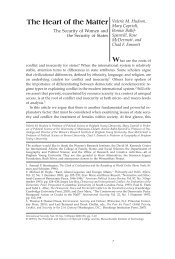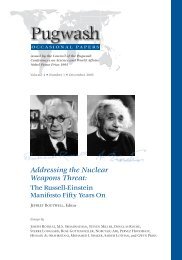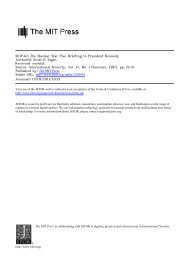RUSSIA'S TINDERBOX - Belfer Center for Science and International ...
RUSSIA'S TINDERBOX - Belfer Center for Science and International ...
RUSSIA'S TINDERBOX - Belfer Center for Science and International ...
You also want an ePaper? Increase the reach of your titles
YUMPU automatically turns print PDFs into web optimized ePapers that Google loves.
In general, in the North Caucasus, however, the national factor seems to be more important<br />
than the Islamic revival <strong>and</strong> religious unity. Prior to the dissolution of the Soviet Union, religious<br />
affairs in the North Caucasus were under the direction of the Religious Board <strong>for</strong> Muslims of the<br />
North Caucasus which was subordinated to the CPSU. Once this body dissolved in 1988, Islamic<br />
religious administration in the region was dispersed among 12 Muslim Religious Boards in the<br />
various republics <strong>and</strong> 10 sub-organizations including 4 Muftiates <strong>and</strong> 6 Mukhtasibats. With this<br />
devolution of religious authority, there was increasing fragmentation on an ethnic basis—leading to<br />
the establishment of separate Dargin <strong>and</strong> Kumyk religious boards in Dagestan, <strong>for</strong> example. A<br />
number of Islamic political parties also emerged in the early 1990s in the individual republics,<br />
including the Islamic Democratic Party of Dagestan, <strong>and</strong> the Islamic Way in Chechnya, but no<br />
single Islamic party was created <strong>for</strong> the North Caucasus.<br />
Since the revival of Islam, the most public role of the Muslim clergy in the North Caucasus<br />
has been in mediating the various inter-group conflicts in the region. As mentioned in Section IV,<br />
religious leaders have frequently intervened in conflicts in Dagestan to convene a Maslahat or<br />
meeting to conclude a peace agreement between opposing sides. As, <strong>for</strong> example, during the<br />
disputes between Laks <strong>and</strong> Kumyks, <strong>and</strong> Chechens <strong>and</strong> Laks in 1992. The clergy’s influence is not<br />
only the result of religious factors, but is also based on North Caucasian traditions of the prominent<br />
role of clan elders. As the clergy are usually older men they comm<strong>and</strong> the traditional respect<br />
accorded to the elders. The Muslim clergy, there<strong>for</strong>e, plays an integrating rather than unifying role in<br />
North Caucasian society, exploiting both ethno-cultural traditions <strong>and</strong> religious beliefs to appeal to<br />
the different national constituencies.<br />
In terms of a broader revival of Islam in the Russian Federation as a whole, an Islamic<br />
Cultural <strong>Center</strong> was established in Moscow in 1990 with some funding from the federal government.<br />
The aim of the center was to build a mosque, publish a newspaper <strong>for</strong> the Russian Muslim<br />
community, arrange conferences on religious issues, create a religious school, <strong>and</strong> provide religious<br />
education in the different native languages <strong>for</strong> the broader population. The <strong>Center</strong> has, however,<br />
been beset by financial difficulties <strong>and</strong> has had its construction projects in Moscow blocked by local<br />
residents. The <strong>Center</strong>’s non-Muslim neighbors are frightened of the seeming appearance of a hotbed<br />
of Islamic Fundamentalism on their doorsteps, <strong>and</strong> have appealed to Russian nationalist groups <strong>for</strong><br />
assistance. 180 As a result of the negative reaction to the revival of Islam in Russia, there is still no<br />
single organizational structure <strong>for</strong> Russian Muslims. The administration of Islamic affairs is<br />
subordinated to the All-Russian <strong>Center</strong> <strong>for</strong> the Coordination of Religious Administration, which was<br />
established in Moscow in 1993.<br />
A number of pan-Islamic political parties have, however, been established in Russia,<br />
including the Islamic Renaissance Party based in Dagestan which has limited appeal outside the<br />
North Caucasus, <strong>and</strong> the Union of Muslims <strong>and</strong> the All-Russian Nur (“Light”) movement which are<br />
competing <strong>for</strong> the same constituency. In August 1995, the latter two organizations announced that<br />
they intended to participate in the December 1995 parliamentary elections. 181<br />
180 See, <strong>for</strong> example, Yelena Lebedeva, “Islamic Cultural <strong>Center</strong> Becomes the Eye of a Storm,” Moscow News,<br />
September 30-October 6, 1994, No. 39.<br />
181 See Laura Belin, “Muslim Organizations Prepare <strong>for</strong> Elections.” OMRI Daily Digest, August 1, 1995.<br />
94


